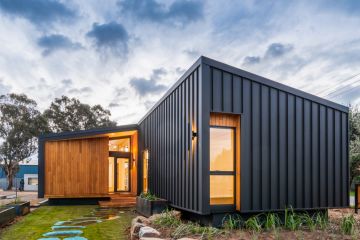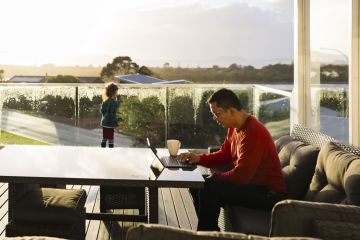Different ways to save for your first home deposit
Saving money for a home deposit seems like a painful proposition when you’re “just scraping by”. But when you examine your spending patterns, you might be in for a shock. Most people don’t realise how much money they waste on things they don’t really need.
Cath Sharples-Rushbrooke, general manager of Advice Services Australia, says: “The first step to saving is “working out what your goal is. How much do you have to save? A home deposit is usually 20 per cent of the property’s value plus stamp duty and other costs. In most cases, you’re looking at saving more than $100,000.”
Make sure your goal is achievable, says Sharples-Rushbrooke, who is a spokesperson for the Financial Planning Association of Australia. “You might start at a lower entry point to get your foot in the [property] door, then upgrade over time.”
Next, you do a stocktake. “Look at what you’ve got in savings and in debts.
Pay down your debts first because debt will affect your borrowing power and eat into your ability to save,” says Sharples-Rushbrooke.
Now it’s time to get serious about budgeting. “Let’s face it, you can’t control your money unless you know where it’s coming from or where it’s going,” says Sharples-Rushbrooke. “A personal budget is one of the best tools that can assist here.”
ASIC’s Money Smart website has a number of free calculators and apps that are really helpful (moneysmart.gov.au/tools-and-resources/calculators-and-apps).
She also advises opening a separate bank account for savings. “Have your employer transfer a portion of your pay into that account and the rest into an access account. Make sure the savings account is hard to access so you’re not tempted to use it.”
Melbourne couple Lucy Worsley and Luke Brown have been saving madly for their “dream shed” for more then four years. The pair met in Europe 11 years ago, lived in Oxfordshire, England, for six years and moved to Australia in 2011.
Worsley, an artist and teacher, is English and Brown is Australian. They rent a flat in Melbourne and are engaged. The pair started saving for a first-home deposit soon after arriving in Australia.
Worsley says: “We have no preconceptions about what our dream shed will be, but it will be ours and that’s what important.” They call their savings plan the Dream Shed Fund (DSF).
Brown says he and his fiancee look forward to paying off their own mortgage. “We’ve been paying off someone else’s mortgage for the past 10 years. In fact, we’ve spent $65,000 in rent in the past five years alone.”
Asked how they save for the DSF, Worsley says: “We transfer some of our income straight into the fund and any time we receive a lump sum, such as a tax return or bonus, it goes straight into the fund.”
They also conserve energy by “only heating and turning a light on in the room we’re in”.
“We have the one car between us and ride our bikes, walk or use public transport when we can. This way, we’re only paying one lot of registration and insurance.”
Worsley is creative and loves making her own homewares. She also enjoys finding “lovely things” in op shops.
“We’re not tight, we still have fun and go out. You have to be realistic with your savings plan and indulge in life’s little pleasures such as good coffee.”
Mary Scoutas, NAB retail general manager for Victoria East, says the most effective savings plans are “tailored to your lifestyle and aligned with your goals”.
“We’re not all experts, and we all have different circumstances we need to take into consideration. A financial advisor can help ensure the savings plan you put into place not only works, but helps you understand what’s required to start your journey of home ownership,” she says.
 Welcome in unique ways to save. Photo: Stocksy
Welcome in unique ways to save. Photo: Stocksy
Advice Services Australia provides the following tips:
EARN MORE MONEY:
• Pick up extra shifts
• Get a second job (at night or weekends)
• Ask the boss for a pay rise
• Sell stuff online
MORE SAVINGS TIPS:
• Look for waste: check your bank statement to see where you are spending money on non-essential items.
• Reduce alcohol intake
• Quit smoking
• Take lunch to work instead of buying it
• Plan your meals for the week ahead so you only buy food that will be used
• Eat leftovers before buying more food
• Avoid buying takeaway food or dining out
• Cancel your gym membership/personal trainer
• Move in with family to save on rent
• Reduce cost of rent by moving to a cheaper rental property
• Reduce utility bills by conserving energy and shop around for better deals
• If you are a couple, sell one car
• Walk or cycle where possible (instead of using the car)
• Catch public transport (instead of using the car and paying for parking)
We recommend
States
Capital Cities
Capital Cities - Rentals
Popular Areas
Allhomes
More







